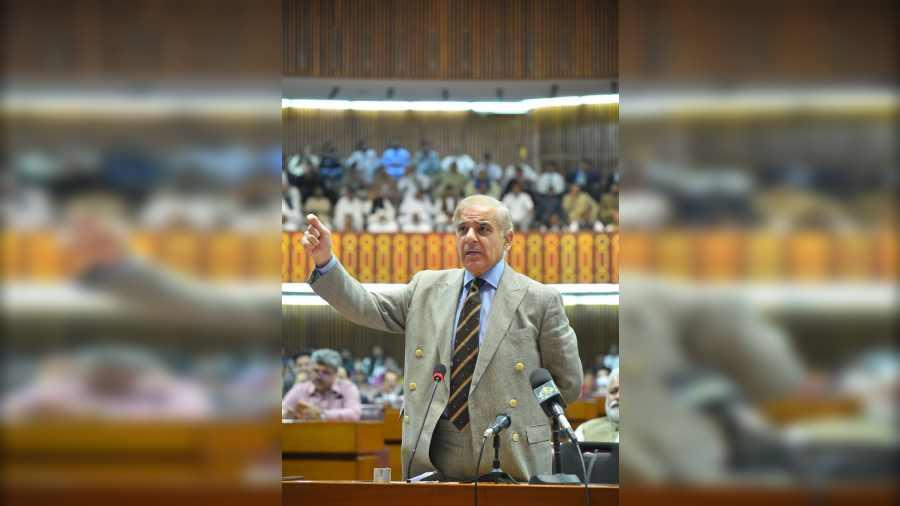The Pakistan government has given its nod to abolish the China-Pakistan Economic Corridor Authority to fast-track the implementation of the ambitious multi-billion dollar regional connectivity programme, according to a media report on Thursday.
However, the decision taken by Prime Minister Shehbaz Sharif on Wednesday, is subject to consent by China, the Express Tribune newspaper reported.
Sharif in principle has given the nod to abolish the CPEC Authority, it said.
"This is in the interest of China-Pakistan Economic Corridor (CPEC) that the authority should be dissolved to ensure fast implementation of its projects, Planning and Development Minister Ahsan Iqbal said while confirming the development.
The decision was made on the basis of a report that the planning and development ministry had moved two months ago to wrap up the body that had remained controversial since its inception, the report said.
The USD 60 billion CPEC project, launched in 2015 which connects Gwadar Port in Pakistan's Balochistan with China's Xinjiang province, is the flagship project of China's ambitious multi-billion-dollar Belt and Road Initiative (BRI).
India has protested to China over the CPEC as it is being laid through Pakistan-occupied Kashmir.
The China-Pakistan Economic Corridor Authority, established through an ordinance in 2019, was aimed at accelerating the pace of CPEC-related activities, finding new drivers of growth, unlocking the potential of interlinked production networks and global value chains through regional and global connectivity.
However, Pakistan's new government led by Sharif was of the view that the authority was a "redundant organisation" with a huge waste of resources which has thwarted speedy implementation of the CPEC.
Iqbal said Shehbaz had instructed that China should first be taken into confidence before going ahead with the move to abolish the authority so as to ensure that the strategic ally should not be left with the impression that Pakistan was rolling back CPEC.
He said the CPEC Authority Act would be repealed once the Chinese authorities give their consent.
The decision to wind up the CPEC Authority is in line with the ruling Pakistan Muslim League-Nawaz's (PML-N) old policy that was never in favour of establishing a parallel set-up.
Iqbal said the CPEC Authority had become an obstruction in the fast implementation of the projects because of the breakdown of the decision-making chain. The planning and development ministry would now play a facilitator role.
The minister said the government would restore the old institutional arrangement that helped the swift implementation of CPEC projects between 2014 to 2018. He also said the CPEC Secretariat would be revived in the planning and development ministry.
Last month, the government had decided that the CPEC Support Project would be strengthened. The Centre of Excellence for CPEC would be transferred back to the Pakistan Institute of Development Economics (PIDE).
Iqbal on Wednesday also reviewed the progress of CPEC projects and preparation for the next Joint Cooperation Committee (JCC) meeting. Pakistan has been trying to hold the meeting of the JCC -- the strategic decision-making body ---- since May. However, the Chinese authorities were first interested in knowing the incumbent government's commitment to CPEC.
The BRI was launched by Chinese President Xi Jinping when he came to power in 2013. It aims to link Southeast Asia, Central Asia, the Gulf region, Africa and Europe with a network of land and sea routes.
The BRI is seen as an attempt by China to further its influence abroad with infrastructure projects funded by Chinese investments all over the world.
The initiative also led to allegations of smaller countries reeling under mounting Chinese debt after Sri Lanka gave its Hambantota port in a debt swap to China in 2017 on a 99-year lease.












